#A Passage to India (1984)
Explore tagged Tumblr posts
Text
When are they going to bring back being a companion to a rich lady who travels as a career?
23 notes
·
View notes
Text

#A Passage to India#Peggy Ashcroft#Judy Davis#James Fox#Alec Guinness#Nigel Havers#Victor Banerjee#David Lean#1984
8 notes
·
View notes
Text

A Passage to India (1984). Cultural mistrust and false accusations doom a friendship in British colonial India between an Indian doctor, an Englishwoman engaged to marry a city magistrate, and an English educator.
Slowly paced and beautifully shot, this has all the hallmarks of David Lean's directorial style. He's a master of epics, and this is a richly told one, albeit one that's very flawed. I wish it was a little more critical of British imperialism, and I wish too it hadn't used brownface for critical Indian characters, but the central story between Dr Aziz and Adela is compelling, and Victor Banerjee and Judy Davis' performances are pretty terrific. 7.5/10.
#a passage to india#1984#Oscars 57#Nom: Picture#Nom: Director#Nom: Actress#Nom: Supporting Actress#Won: Supporting Actress#Nom: Adapted Screenplay#Nom: Score#Won: Score#Nom: Sound#Nom: Art Direction#Nom: Cinematography#Nom: Costume#Nom: Editing#david lean#em forster#santha rama rau#judy davis#victor banerjee#peggy ashcroft#alec guinness#india#english#england#racism#courtroom drama#7.5/10
10 notes
·
View notes
Text
Movies I’ve Watched - 2024
185/?: A Passage to India (1984) - watched 6/29/24
The 80s were a weird time in movie history. This movie offers a lot of pointed criticism of the attitudes of British colonials toward native Indians, yet it also thought it was acceptable for Alec Guinness to perform a role in brownface. Overall, this was much better than I expected. I appreciated that the British were the undisputed villains, and it was interesting throughout, fully justifying the long runtime.








A PASSAGE TO INDIA (1984) - Directed by David Lean

93 notes
·
View notes
Text


A PASSAGE TO INDIA (1984) dir. David Lean
#a passage to india#filmedit#filmgifs#movieedit#moviegifs#fyeahmovies#dailyflicks#filmtvdaily#cinemapix#cinematicsource#cinemaedit#cinematv#mine
282 notes
·
View notes
Text





TOP 5 FIRST-TIME WATCHES OF JULY 2024 1. A PASSAGE TO INDIA (1984, dir. David Lean) 2. JANET PLANET (2023, dir. Annie Baker) 3. LES VOLEURS (1996, dir. André Téchiné) 4. EMPRESS MICHIKO, THE STRENGTH OF THE REED (2021, dir. Anne-Sophie Chaumier Le Conte) 5. BABES (2024, dir. Pamela Adlon)
#ranking list#a passage to india#judy davis#janet planet#julianne nicholson#zoe ziegler#annie baker#les voleurs#catherine deneuve#empress michiko#anne sophie chaumier le conte#babes#ilana glazer#michelle buteau#pamela adlon#woman director
59 notes
·
View notes
Text
How many of these "Top 100 Books to Read" have you read?
(633) 1984 - George Orwell
(616) The Great Gatsby - F. Scott Fitzgerald
(613) The Catcher In The Rye - J.D. Salinger
(573) Crime And Punishment - Fyodor Dostoyevsky
(550) Catch-22 - Joseph Heller
(549) The Adventures Of Tom And Huck - Series - Mark Twain
(538) Moby-Dick - Herman Melville
(534) One Hundred Years Of Solitude - Gabriel Garcia Marquez
(527) To Kill A Mockingbird - Harper Lee
(521) The Grapes Of Wrath - John Steinbeck
(521) Lolita - Vladimir Nabokov
(492) Pride And Prejudice - Jane Austen
(489) The Lord Of The Rings - Series - J.R.R. Tolkien
(488) Brave New World - Aldous Huxley
(480) Ulysses - James Joyce
(471) Jane Eyre - Charlotte Bronte
(459) Wuthering Heights - Emily Bronte
(398) The Brothers Karamazov - Fyodor Dostoyevsky
(396) Great Expectations - Charles Dickens
(395) To The Lighthouse - Virginia Woolf
(382) War And Peace - Leo Tolstoy
(382) The Sun Also Rises - Ernest Hemingway
(380) The Sound And The Fury - William Faulkner
(378) Alice's Adventures In Wonderland - Series - Lewis Carroll
(359) Frankenstein - Mary Wollstonecraft Shelley
(353) Heart Of Darkness - Joseph Conrad
(352) Middlemarch - George Eliot
(348) Animal Farm - George Orwell
(346) Don Quixote - Miguel de Cervantes Saavedra
(334) Slaughterhouse-Five - Kurt Vonnegut
(325) Les Misérables - Victor Hugo
(320) Harry Potter - Series - J.K. Rowling
(320) The Chronicles Of Narnia - Series - C.S. Lewis
(317) Anna Karenina - Leo Tolstoy
(308) Lord Of The Flies - William Golding
(306) Invisible Man - Ralph Ellison
(289) The Golden Bowl - Henry James
(276) Pale Fire - Vladimir Nabokov
(266) Gone With The Wind - Margaret Mitchell
(260) The Count Of Monte Cristo - Alexandre Dumas
(255) The Hitchhiker's Guide To The Galaxy - Series - Douglas Adams
(252) The Life And Opinions Of Tristram Shandy, Gentleman - Laurence Sterne
(244) Madame Bovary - Gustave Flaubert
(237) Vanity Fair - William Makepeace Thackery
(235) The Trial - Franz Kafka
(233) Absalom, Absalom! - William Faulkner
(232) The Call Of The Wild - Jack London
(232) Emma - Jane Austen
(229) Beloved - Toni Morrison
(228) Little Women - Louisa May Alcott
(224) A Passage To India - E.M. Forster
(215) Dune - Frank Herbert
(215) A Portrait Of The Artist As A Young Man - James Joyce
(212) The Stranger - Albert Camus
(209) One Flew Over The Cuckoo's Nest - Ken Kesey
(209) The Idiot - Fyodor Dostoyevsky
(206) Dracula - Bram Stoker
(205) The Picture Of Dorian Gray - Oscar Wilde
(197) A Confederacy Of Dunces - John Kennedy Toole
(193) Mrs. Dalloway - Virginia Woolf
(193) The Age Of Innocence - Edith Wharton
(193) The History Of Tom Jones, A Foundling - Henry Fielding
(192) Under The Volcano - Malcolm Lowry
(190) The Odyssey - Homer
(189) Gulliver's Travels - Jonathan Swift
(188) In Search Of Lost Time - Marcel Proust
(186) Midnight's Children - Salman Rushdie
(185) An American Tragedy - Theodore Dreiser
(182) The Book Thief - Markus Zusak
(180) Siddhartha - Hermann Hesse
(179) The Magic Mountain - Thomas Mann
(178) Things Fall Apart - Chinua Achebe
(178) Tropic Of Cancer - Henry Miller
(176) The Outsiders - S.E. Hinton
(176) On The Road - Jack Kerouac
(175) The Little Prince - Antoine de Saint-Exupery
(173) The Giver - Lois Lowry
(172) Brideshead Revisited - Evelyn Waugh
(172) A Clockwork Orange - Anthony Burgess
(171) Charlotte's Web - E.B. White
(171) The Ambassadors - Henry James
(170) Infinite Jest - David Foster Wallace
(167) The Complete Stories And Poems - Edgar Allen Poe
(166) Ender's Saga - Series - Orson Scott Card
(165) In Cold Blood - Truman Capote
(164) The Wings Of The Dove - Henry James
(163) The Adventures Of Augie March - Saul Bellow
(162) As I Lay Dying - William Faulkner
(161) The Hunger Games - Series - Suzanne Collins
(158) Anne Of Greene Gables - L.M. Montgomery
(157) Atlas Shrugged - Ayn Rand
(157) Neuromancer - William Gibson
(156) The Help - Kathryn Stockett
(156) A Song Of Ice And Fire - George R.R. Martin
(155) The Good Soldier - Ford Madox Ford
(154) The Da Vinci Code - Dan Brown
(153) I, Claudius - Robert Graves
(152) Wide Sargasso Sea - Jean Rhys
(151) The Portrait Of A Lady - Henry James
(150) The Death Of The Heart - Elizabeth Bowen
#books#book lists#p#im posting this so i can reblog it with my own crossed out list and i encourage others to do the same if you want to#i dont actually know how many ive read yet myself
35 notes
·
View notes
Text

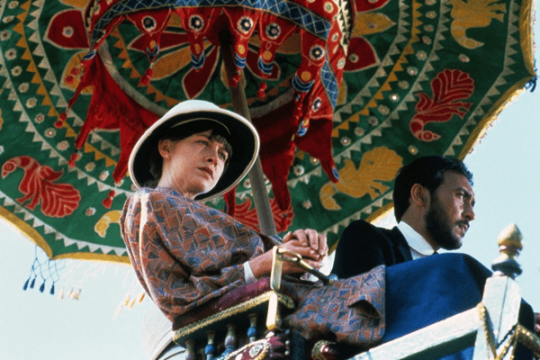

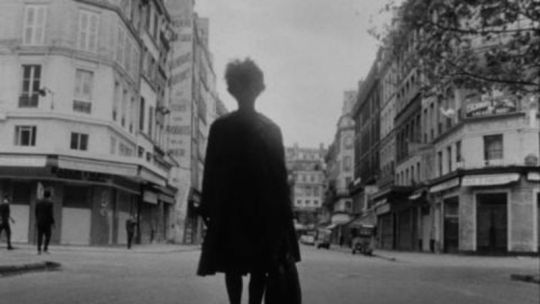
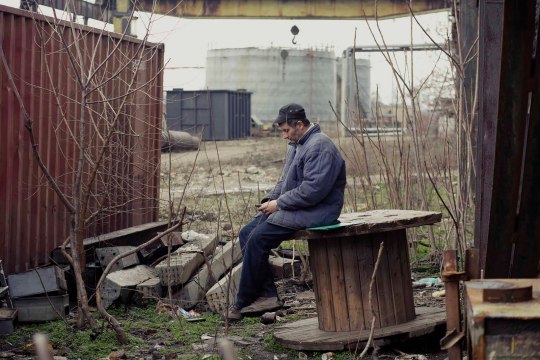
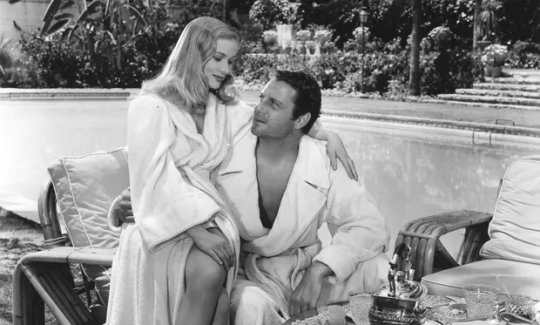

Favorite films watched in February 2024:
Unrest (2022), dir. Cyril Schäublin
A Passage to India (1984), dir. David Lean
Perfect Days (2023), dir Wim Wenders
Chronicle of a Summer (1961), dir. Jean Rouch & Edgar Morin
Aurora (2010), dir. Cristi Puiu
Sullivan's Travels (1941), dir. Preston Sturges
The Zone of Interest (2023), dir. Jonathan Glazer
#w24*#2024 in films#films of 2024#unrueh#unrest#cyril schäublin#a passage to india#david lean#perfect days#wim wenders#chronicle of a summer#aurora#cristi puiu#sullivan's travels#preston sturges#the zone of interest#jonathan glazer
30 notes
·
View notes
Text

Hobson’s Choice (1954)
Lawrence of Arabia (1962)
A Passage to India (1984)
#Hobson’s choice#lawrence of arabia#a passage to india#david lean#parallels#charles laughton#anthony quinn
8 notes
·
View notes
Text
100 Books to Read Before I Die: Quest Order
The Lord Of The Rings by J. R. R. Tolkien
In Search of Lost Time by Marcel Proust
The Great Gatsby by F. Scott Fitzgerald
A Wrinkle in Time by Madeleine L’Engle
Jane Eyre by Charlotte Brontë
Pride and Prejudice by Jane Austen
Frankenstein by Mary Shelley
The Good Soldier by Ford Madox Ford
Under The Net by Iris Murdoch
American Pastoral by Philip Roth
The Unbearable Lightness of Being by Milan Kundera
Animal Farm by George Orwell
Housekeeping by Marilynne Robinson
Anna Karenina by Leo Tolstoy
Atonement by Ian McEwan
Crime And Punishment by Fyodor Dostoyevsky
The Grapes Of Wrath by John Steinbeck
Midnight’s Children by Salman Rushdie
Lucky Jim by Kingsley Amis
Slaughterhouse-Five by Kurt Vonnegut
The Sun Also Rises by Ernest Hemingway
Invisible Man by Ralph Ellison
A Passage to India by EM Forster
Of Human Bondage by W. Somerset Maugham
The Prime of Miss Jean Brodie by Muriel Spark
The Amazing Adventures of Kavalier and Clay by Michael Chabon
If on a Winter’s Night a Traveller by Italo Calvino
The Hitchhiker’s Guide to the Galaxy by Douglas Adams
1984 by George Orwell
White Noise by Don DeLillo
The Count of Monte Cristo by Alexandre Dumas
The Sound and the Fury by William Faulkner
The Stranger by Albert Camus
Lolita by Vladimir Nabokov
Oscar And Lucinda by Peter Carey
The Wind-Up Bird Chronicle by Haruki Murakami
Gulliver’s Travels by Jonathan Swift
Brave New World by Aldous Huxley
As I Lay Dying by William Faulkner
To Kill A Mockingbird by Harper Lee
Lord of the Flies by William Golding
The Portrait of a Lady by Henry James
The Call of the Wild by Jack London
Pale Fire by Vladimir Nabokov
Beloved by Toni Morrison
Tinker Tailor Soldier Spy by John Le Carré
Austerlitz by W. G. Sebald
The Scarlet Letter by Nathaniel Hawthorne
Brideshead Revisited by Evelyn Waugh
Tropic of Cancer by Henry Miller
The Age of Innocence by Edith Wharton
Mrs. Dalloway by Virginia Woolf
The Heart Is a Lonely Hunter by Carson McCullers
The Phantom Tollbooth by Norton Juster
Ulysses by James Joyce
Scoop by Evelyn Waugh
Haroun and the Sea of Stories by Salman Rushdie
Things Fall Apart by Chinua Achebe
Middlemarch by George Eliot
Are You There, God? It’s me, Margaret by Judy Blume
Clarissa by Samuel Richardson
Moby-Dick by Herman Melville
The Handmaid’s Tale by Margaret Atwood
Herzog by Saul Bellow
The Brief Wondrous Life of Oscar Wao by Junot Diaz
Wuthering Heights by Emily Brontë
Don Quixote by Miguel De Cervantes
A Bend in the River by V. S. Naipaul
A Dance to The Music of Time by Anthony Powell
The Strange Case of Dr Jekyll and Mr Hyde by Robert Louis Stevenson
Go Tell It On The Mountain by James Baldwin
Wide Sargasso Sea by Jean Rhys
Catch-22 by Joseph Heller
The Rainbow by D. H. Lawrence
Song of Solomon by Toni Morrison
I, Claudius by Robert Graves
Nostromo by Joseph Conrad
The Tin Drum by Gunter Grass
Madame Bovary by Gustave Flaubert
The Catcher in the Rye by JD Salinger
Charlotte’s Web by E. B. White
Tom Jones by Henry Fielding
His Dark Materials by Philip Pullman
Alice’s Adventures In Wonderland by Lewis Carroll
Little Women by Louisa M Alcott
Great Expectations by Charles Dickens
Portnoy’s Complaint by Philip Roth
Watchmen by Alan Moore
One Hundred Years of Solitude by Gabriel García Márquez
Robinson Crusoe by Daniel Defoe
Tristram Shandy by Laurence Sterne
On the Road by Jack Kerouac
The Big Sleep by Raymond Chandler
The Wind in the Willows by Kenneth Grahame
To the Lighthouse by Virginia Woolf
The Corrections by Jonathan Franzen
The Trial by Franz Kafka
Their Eyes Were Watching God by Zora Neale Hurston
Money by Martin Amis
David Copperfield by Charles Dickens
20 notes
·
View notes
Text
Met vrijheid getooid
Ergens in de jaren zeventig las ik George Orwells roman '1984'. Ik meen me te kunnen herinneren hoe gevangen ik mezelf voelde in de wurgende sfeer van de totalitaire staat waarin hoofdpersoon Winston Smith leeft. Op de witte gevels van het Ministerie van Waarheid, waar hij werkt, staat in sierlijke letters: OORLOG IS VREDE – VRIJHEID IS SLAVERNIJ – ONWETENDHEID IS KRACHT. Ik moest toen tijdens het lezen toch ergens mijn hoop vandaan halen. Was het niet in de natuur, ver weg van de hermetisch gecontroleerde stad, dat de laatste resten vrijheid te vinden waren? Het zou toch onmogelijk zijn om onder elke boom, in elke bergspleet of verscholen in het riet gedetecteerd te kunnen worden. Ieder jaar komt die gedachte wel een keer naar boven, als ik ergens langs een water loop, of midden door een bos.
Ik bladerde in het boek dat decennia dicht was gebleven, op zoek naar een passage die dat vermoeden zou bevestigen, en vond het op pagina 103. Een onbekende vrouw heeft Winston op slinkse wijze haar streng verboden liefde aan hem kenbaar gemaakt. Ze ontsnappen aan de ogen van Big Brother ergens ver buiten de stad. “Het zonlicht zeefde door bladeren zonder tal en was nog heet op hun gezichten. Winston keek uit naar het veld daarachter en had een eigenaardige, trage schok van herkenning. Hij kende het van gezicht. Een oude, kort afgegraasde weide, met een voetpad er dwars doorheen en hier en daar een molshoop. In de ongelijke heg aan de overkant deinden de takken der olmbomen nauw merkbaar in het koeltje, en hun bladeren bewogen zwakjes in dichte opeenhopingen, als vrouwenhaar. “ En dan raken ze samen betoverd door het zingen van een lijster, en vervolgens door elkaars lichamen.
Ik dwaalde in Breda langs enorme foto's die verspreid opgesteld stonden in een braakliggende gebied waar de natuur langzaam terrein wint. Het was Breda Photo. Ik werd onmiddellijk getroffen door een foto van een jonge vrouw. Ze heeft een krans van bladeren om haar haar gedaan. Ze draagt een mouwloze jurk met zonnebloemen en aan een lange, kleurige ketting hangt een halve maan. Haar blik is verstild en naar binnen gekeerd. Ze zou een Zuid-Amerikaanse kunnen zijn, of iemand uit India, maar ze is een Iraanse. Ik las dat de Iraans-Canadese fotografe Parisa Azadi, jonge Iraniërs fotografeert die in de woestijnen en bossen een gevoel van vrijheid zoeken, ver weg van het stedelijk islamitische regime.
Ik was vergeten hoe Orwells roman eindigt en zocht het op. Ellendiger kan het niet: gebroken door het systeem geeft Winston Smith zich over aan het systeem. In de foto van de Iraanse lees ik hoop: haar gezicht verraadt de realiteit van het leven dat ze voor even achter laat en dat weer op haar wacht, maar daar, in dat donker bos, tooit ze zich met symbolen van vrijheid. Misschien is die maan aan haar ketting, niet wassend maar afnemend, een teken van hoop of stil verzet.
2 notes
·
View notes
Text
If I had a nickle for every time David Lean used a brass band playing at a train station as a scene transition I'd have two nickles, which isn't a lot but it's weird that it happened twice...
13 notes
·
View notes
Text
[Orwell discusses], in The Road to Wigan Pier, […] how his hatred for imperialism built up in Burma: “All over India there are Englishmen who secretly loathe the system of which they are part; and just occasionally, when they are quite certain of being in the right company, their hidden bitterness overflows”. This passage conjoins contingency (“just occasionally”) and excess (the bitterness that “overflows”) and soon shifts to a more overt depiction of political intimacy: of politics as intimacy, and intimacy through politics. Orwell continues: “I remember a night I spent on the train with a man in the Educational Service, a stranger to myself whose name I never discovered. It was too hot to sleep and we spent the night in talking. Half an hour’s cautious questioning decided each of us that the other was ‘safe’; and then for hours, while the train jolted slowly through the pitch-black night ... we damned the British Empire—damned it from the inside, intelligently and intimately.... [I]n the haggard morning light when the train crawled into Mandalay, we parted as guiltily as any adulterous couple”. As much as anywhere in Orwell’s work, this passage makes the affective nature of political commitment explicit. This passage also anticipates the furtive, outlawed relationship of Winston and Julia in 1984. Orwell’s stress on this intimacy with someone who remains a stranger (“whose name I never discovered”) also resembles the focus on his brief but “utter intimacy” with the Italian militiaman at the opening of Homage to Catalonia. Here, too, such intimacy is built on contingency (we might even think of the oxymoronic description of how the train, in Wigan Pier, “jolted slowly”): “But I also knew that to retain my first impression of him I must not see him again; and needless to say I never did see him again. One was always making contacts of that kind in Spain”.
Alex Woloch, Or Orwell: Writing and Democratic Socialism (Harvard University Press, 2016), p. 337 n. 31.
3 notes
·
View notes
Text









Tagged by the lovely @ttoshaaa — thank you for tagging me!
My nine favorite films from 2022 (I made two videos about this!):
The Captivating Star of Happiness (1975) dir. Motyl / A Passage to India (1984) dir. Lean / The Grand Budapest Hotel (2014) dir. Anderson / The Leopard (1963) dir. Visconti / Amadeus (1984) dir. Forman / Ludwig (1973) dir. Visconti / The Age of Innocence (1993) dir. Scorsese / Twelfth Night (1996) dir. Nunn / Lawrence of Arabia (1963) dir. Lean
Tagging @boudicca @mityarostrokovich @tchaikennugget @nizynskis @addamii @cunningfate @victoriancryptid and @foxchai <3
18 notes
·
View notes
Text
The Best Picture Oscar My Way (1980-1999)
Here’s Part 2 of Best Picture My Way (as started here). All information about my approach with this category can be found on that linked first part.
For convenience sake, I’ll relay this message. Only the films I add onto here as nominees will have listed nominated producers next to the movie’s title. (Here’s the Wikipedia page for the rest.)
1980
The Empire Strikes Back - Gary Kurtz
Raging Bull
The Elephant Man
Coal Miner’s Daughter
Ordinary People
1981
Raiders of the Lost Ark
Das Boot - Gunter Rohrbach; Michael Bittins
Reds
On the Golden Pond
Chariots of Fire
1982
Tootsie
E.T.: The Extra-Terrestrial
Fitzcarraldo - Werner Herzog; Willi Segler; Lucki Stipetic
Missing
Gandhi
1983
Fanny and Alexander - Jorn Donner
Terms of Endearment
Scarface - Martin Bregman
Mender Mercies
The Right Stuff
1984
Amadeus (still)
The Terminator - Gale Anne Hurd
Love Streams - Yoram Globus; Menahem Golan
Ghostbusters - Ivan Reitman
A Passage to India
1985
Back to the Future - Neil Canton; Bob Gale
The Color Purple
After Hours - Robert F. Colesberry; Griffin Dunne; Amy Robinson
Ran - Masato Hara; Serge Silberman
Witness
1986
Platoon (still)
Misery - Rob Reiner; Andrew Scheinman
Hannah and Her Sisters
A Room with a View
Blue Velvet - Fred C. Caruso
1987
The Last Emperor (still)
The Princess Bride - Rob Reiner; Andrew Scheinman
Broadcast News
Moonstruck
Fatal Attraction
1988
Who Framed Roger Rabbit - Frank Marshall; Robert Watts
Rain Man
Dangerous Liaisons
Mississippi Burning
The Last Temptation of Christ - Barbara De Fina
1989
Do The Right Thing - Spike Lee
Driving Miss Daisy
Dead Poets Society
My Left Foot
Cinema Paradiso - Giovanna Romagnoli
1990
Goodfellas
Dances with Wolves
Edward Scissorhands - Tim Burton; Denise Di Novi
Ghost
The Godfather Part III
1991
The Silence of the Lambs (still)
Thelma & Louise - Ridley Scott
Beauty and the Beast
Boyz in the Hood - Steve Nicolaides
JFK
1992
Unforgiven (still)
A Few Good Men
Malcolm X - Spike Lee; Marvin Worth
Reservoir Dogs - Lawrence Bender; Harvey Keitel
Aladdin - Ron Clements; John Musker
1993
Schindler’s List (still)
The Piano
Philadelphia - Jonathan Demme; Edward Saxon
In The Name of the Father
The Fugitive
1994
The Lion King - Don Hahn
Forrest Gump
Pulp Fiction
The Shawshank Redemption
Eat Drink Man Woman - Kong Hsu; Li-Kong Hsu
1995
Toy Story - Bonnie Arnold; Ralph Guggenheim
Se7en - Phyllis Carlyle; Arnold Kopelson
The Postman (Il Postino)
Before Sunrise - Anne Walker-McBay
Braveheart
1996
Fargo
Trainspotting - Andrew Macdonald
Secrets & Lies
Jerry Maguire
The English Patient
1997
Titanic (still)
Good Will Hunting
L.A. Confidential
Princess Mononoke - Toshio Suzuki
Boogie Nights - Paul Thomas Anderson; Lloyd Levin; John S. Lyons; JoAnne Sellar
Lost Highway - Deepak Nayar; Tom Sternberg; Mary Sweeney
As Good as It Gets
The Full Monty
1998
Saving Private Ryan
Life is Beautiful
The Thin Red Line
The Big Lebowski - Joel and Ethan Coen
Mulan - Pam Coats
Central Station - Arthur Cohn; Martine de Clermont-Tonnerre; Robert Redford; Walter Salles
The Truman Show - Edward S. Feldman; Andrew Niccol; Scott Rudin; Adam Schroeder
Rushmore - Barry Mendel; Paul Schiff
Shakespeare in Love
1999
The Matrix - Joel Silver
American Beauty
The Green Mile
The Sixth Sense
Magnolia - Paul Thomas Anderson; JoAnne Sellar
The Straight Story - Neal Edelstein; Mary Sweeney
Man on the Moon - Danny DeVito; Michael Shamberg; Stacey Sher
Being John Malkovich - Steve Golin; Vincent Landay; Sandy Stern; Michael Stipe
#cinema#academy award#oscars#award show#alternative#animation#film#movies#I'm officially insane#international cinema#hollywood#the matrix#coen brothers#steven spielberg#disney#martin scorsese#robert zemeckis
6 notes
·
View notes
Text
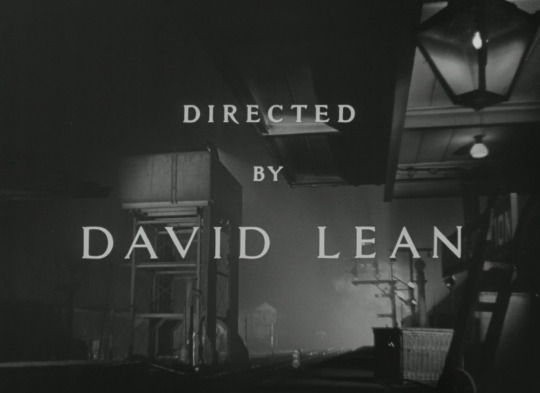

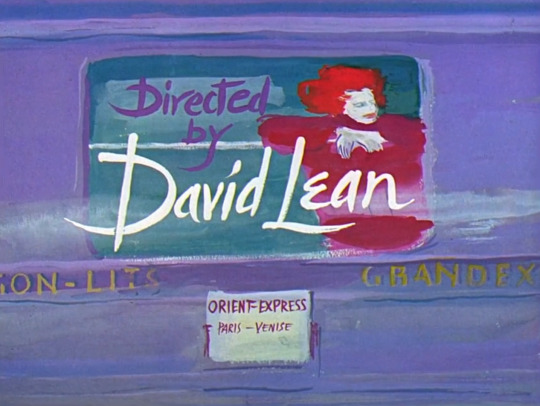
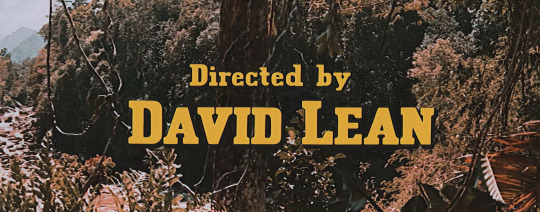


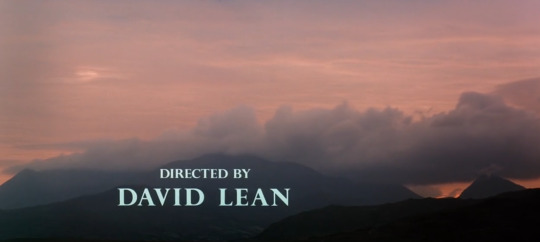

Brief Encounter (1945) - The Passionate Friends (1949) - Summertime (1955) - The Bridge On The River Kwai (1957) - Lawrence of Arabia (1962) - Doctor Zhivago (1965) - Ryan's Daughter (1970) - A Passage To India (1984)
#david lean#filmedit#brief encounter#the passionate friends#summertime#the bridge on the river kwai#lawrence of arabia#doctor zhivago#ryan's daughter#a passage to india#title cards#mine#the first time i watched a passage to india and saw directed AND EDITED by david lean. moaned out loud a little bit ngl
164 notes
·
View notes